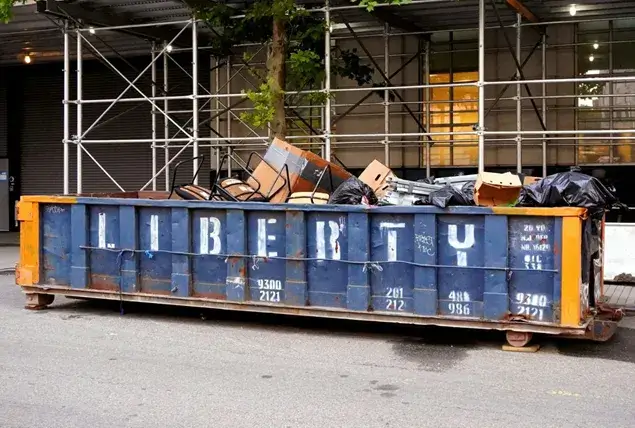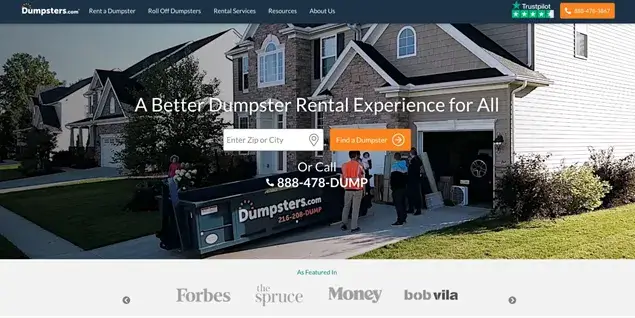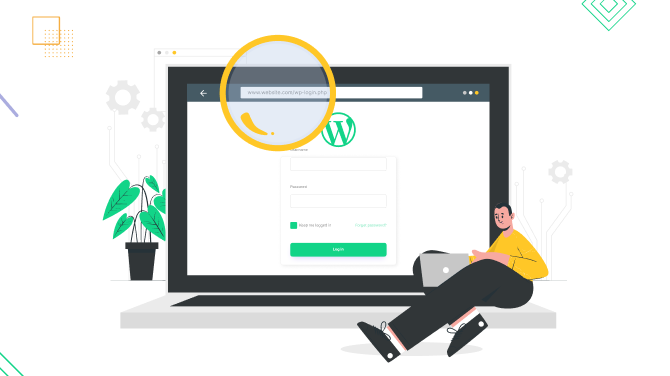How to Start a Dumpster Rental Business: The Ultimate Guide for 2025

Market research and feasibility are The first things to consider when starting a dumpster rental business. Do you have friends who run a similar business? Have you worked for a similar company? It doesn’t matter! What actually matters is your careful research of the market demands, services, and finally, regulations needed to work in the business. Our task for today is to help you go through all the processes required to start a dumpster rental business the smart way.
Where to Work? Determine Your Area of Operation
The first thing you need to know is who and where you are going to serve. Clients need to know your service areas.

Based on the location and client demands, you’ll be able to understand the services you can provide and the types of dumpsters that you need to buy and then rent out to clients.
Popular areas with a big need for dumpster rentals include construction sites, home renovations, events, and commercial businesses – such as offices.
Who is Your Client? Target Audience Type
It’s highly unlikely that you will understand all your client types at the beginning – so no worries here.

However, you should see at least some types of target audiences you can offer your services to. Who are you most interested in serving? Potential clients may be looking for:
- small home cleanouts.
- large construction projects.
- yard waste.
- hazardous materials.
So, this could include residential clients, contractors, businesses, or a mix. Understanding this will help you tailor your services and legal setup.
What Services Will You Offer?
The services you plan to offer will shape a lot of things – like the dumpster sizes you’ll need to get and the regulations needed to be handled.
There exist numerous services and extra services that clients usually buy in combos. Figuring out which ones you can bundle can help you earn more money as a result.

- Residential trash collection.
- Commercial waste disposal.
- Recycling.
- Bulk trash pick-up.
- Construction waste disposal.
Those services can be offered on special terms, so you need to understand client requirements and tailor your offerings to, for example:
- Delivery and pickup.
- Same-day delivery.
- Scheduled pickups.
- On-demand pickups.
Dumpster Size – Which Are the Most Popular for Services You Offer?
10, 12, or 15 yards? Or probably 30 and 40?
Of course, every client will need to choose a dumpster size based on their project and business. But which ones will be more on-demand? Try to identify this based on your service type and target audience.
Understanding waste types is also important in describing and advertising your services, as well as choosing which types of dumpsters to buy. For example:
- General waste.
- Construction & demolition debris (C&D).
- Yard and organic waste.
Some examples of dumpster sizes based on waste types include:
- Big cleanup projects – 20-yard roll-off dumpster.
- Office or large home renovation – 30-yard roll-off dumpster.
- Heavy materials like concrete – 10-15-yard roll-off dumpsters.
- Heavy debris clean-outs – 20-yard roll-off dumpster.
When you’ve decided, your next question might be – where do I store those dumpsters? Based on the count and size, think of the place you can rent to store your equipment.
What are Your Rental Terms? Research Rates & Fees
What rental periods can be most beneficial for you based on your client type and area of operation?
What are your city’s regulations in terms of permit costs? These are crucial things you need to research before you launch your dumpster rental business.
Customers are looking for transparent pricing with no hidden fees, so it’s your task to explain to them all the service costs and fees.
Consider rental duration options:
- Daily rentals.
- Weekly rentals.
- Monthly rentals.
- Flat rate and variable rate.
Moreover, customers renting a dumpster as a rule forget about the additional permit fees that often come with the process.
So, various dumpster fee regulations should also be thought out at the beginning and explained to the customer. Typical ones include:
- Overweight fees
Dumpster containers have weight limits set by state regulations and rental company policies to ensure safe transportation. Exceeding these limits means additional fees and your customers must be aware of them.
- Tipping fees
Landfills charge a tipping fee based on the weight of the waste disposed, which covers landfill operating costs and waste disposal expenses. Waste generators can pay these costs through various fees or taxes.
- Permit fees
Search which local governments are responsible for issuing these permits and find out the extra costs.
Research Regulations & Compliance

In the waste management business, compliance with local governments and regulations is not just highly important to avoid fines but also might be very complicated. It’s crucial to research the legal papers and understand multiple regulations in your region:
- Landfill restrictions and local permits.
- Recycling mandates.
- Environmental compliance.
- Waste segregation.
It all boils down to whether and how your dumpster rental business will handle the collection, transportation, processing, disposal, recycling, or monitoring of waste materials.
With all this in mind, your dumpster rental agreements including these details, will also look much more professional.
Who is Your Competitor? Understand Market Players
Understanding what your competitors are doing is the best way to validate your business idea. On competitors’ websites, you can find prices, services offered, locations of operations, special discounts, etc.

Customer reviews can also come in handy to identify issues of competitors, but it’s smarter to look for them on external review platforms, not directly on the website.
Such research will help you sketch a plan of your own journey as well as try to identify gaps and problems you can solve – probably even better than your competitors!
How to Automate Processes? Look for Software & Online Services
In the modern era, clients will search for your services on the internet, so the web presence is highly important.

You can opt to advertise your services on the extra platforms, but having a brand site will guarantee your professional brand image and more independence in the long run.
To make a website fully work for your needs, various types of software and pages can boost your operations:
- Automate dumpster rental processes with booking software like BookingPress, which will help you control your services, rental bookings, payments, clients, and staff fully automatically.
- Create a detailed service listing preferably with a search form or search filters.
- You may also think of integrating fleet management software, which will take care of GPS tracking, route optimization, and real-time driver updates.
- Analytics software to track business performance.
- Inventory management software to track the availability of dumpsters and their condition.
Concluding… How to Start a Profitable Dumpster Rental Business?
Seems like a lot of work. Want to skip something to get down to business quicker? Well, then we don’t recommend these things:
- Ensure that you are operating legally.
- Determine the services and dumpster sizes you need to buy.
- Get the right storage place for dumpsters.
- Make sure you serve the clients right with the right tools and website software.
- Ensure your pricing and fees are transparently stated in the rental agreements and website.
More articles:

Get BookingPress Premium
50+ Premium Addons
20+ Payment Gateways
Plan starts at just $79
Get Premium Now






